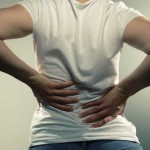New research has confirmed what many gardeners have long suspected- that spending time in the garden has widespread physical and emotional benefits. The study highlights that gardening can aid weight management, emotional stress and can even help improve social skills and cognitive abilities. In fact, horticultural therapy is becoming increasingly recognised as a valuable method for helping those living with long term health problems, including pain.
However, a key group of chronic pain sufferers may be missing out on the fruitful rewards of their cherished gardens. A survey into sufferers of painful joints found that nearly 74% of keen gardeners are giving up their favourite hobby as a result of joint pain. A further 73% no longer enjoy working in their garden because agonising joint pain becomes too much to bear..
Inflammatory specialist Dr Kaj Winther explains ‘‘the overall benefits of gardening stretch well beyond just the obvious physical benefits. However, all the bending, standing, twisting and kneeling required for even the simplest of tasks puts additional pressure on joints.’’
So what can you do to help relieve pain and get you back out in the great outdoors?
1) Plan ahead. If painful joints are likely to spoil a long gardening to do list, prioritise the most essential tasks to complete first. It’s also best to do little and often so joints aren’t overly antagonised by too much activity in one go.
2) Ask for help. For any heavy work which is definitely off limits, ask a friend, relative or professional to come in and lend a hand.
3) Natural help. Taking an effective natural joint health supplement can reduce joint pain. Research suggests that GOPO, an active compound derived from rosehips found only in GOPO Joint Health, leads to improvements in joint pain, mobility, stiffness and reduced reliance on painkillers in arthritis sufferers. Further studies also highlight the potential benefits of GOPO in active healthy adults with joint pain, and those with acute exacerbations of chronic lower back pain.
4) Get a grip. Long handled tools will help you avoid frequent bending, and a soft spongy grip can improve your grasp of the tool. Go for lightweight equipment and keep them in good condition to avoid unnecessary effort.
5) New heights. Raised flower beds and planting boxes will be an easier option for those who struggle to kneel or bend down. A garden stool may also be of help, but take care to avoid sitting for too long and becoming stiff.





